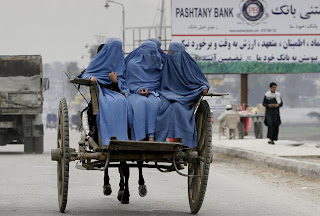Education is key to a bright future for all global citizens. A brilliant article posted on
Eldis talks about how even the most basic forms of education can greatly impact a whole society.
A group is only as strong as its weakest member, and the global economy cannot improve unless those in the poorest regions, including Afghanistan & African countries are given a chance to live to their true potential.
***********************************************
Improving Food Security and Rural Development Through Relevant Basic EducationAuthors: Tutui Nanok
Publisher: Research4Development, 2005
Many developing countries are severely challenged by a vicious cycle of food insecurity, poverty and under-education. The route out of this so-called poverty trap lies in multiple strategies for poverty reduction, whereby interconnected problems are tackled simultaneously. Promoting access to relevant basic education is a good place to start.
A study by the Catholic University of Leuven, in Belgium, in collaboration with the World Agroforestry Centre, in Kenya, aims to improve the effectiveness of development policies by identifying ways in which relevant basic education aids the achievement of food security (the availability of and access to sufficient food) and sustainable rural development. It also seeks to improve cooperation among the European Community, European Union and other development organisations.
The study examines basic education initiatives in rural areas that use agricultural or environmental experience to make teaching and learning more relevant, and the effect of this type of approach on sustainable rural development and food security. This involved a global literature review focusing on different policies, initiatives and analyses, plus fieldwork in Kenya, Zimbabwe and Mali.
Increased investment in education is critical for speeding up improvements in food security. Education in rural areas improves farmers’ ability to implement more advanced technologies and techniques for crop management. Education also improves rural residents’ ability to find more profitable off-farm employment, boosting household income. Key findings include:
• Relevant basic education aids rural development. Productivity is positively influenced by the quality and relevance of schooling.
• Relevant basic education helps teach life skills that are useful for poverty alleviation in rural areas.
• School curricula are often very demanding, centralised and rigid. Moreover, rural teachers are often inadequately prepared, trained, supervised and supported in their work.
• Teaching and learning support materials that are relevant to the local situation are frequently inadequate.
• Basic education in rural areas can be made more relevant to the local context with the use of agricultural and environmental experiences.
• If basic education is to be relevant and effective, the community in question has to be involved in programmes providing it.
In order to develop basic education geared towards rural development, governments and development partners need to undertake an integrated and multi-sectoral effort in the rural areas of developing countries. The study concludes that:
• In rural areas, basic education should focus on learners’ needs.
• School curricula should take into consideration rural children’s real life situations and should be relevant to local needs and conditions.
• Teachers should be supported with improved pre-service and in-service training.
• Schools should be provided with adequate teaching and learning materials.
• Improved links between schools and communities should be encouraged.
• There should be more effective monitoring of basic education in rural areas.

You can read the full report
here.



